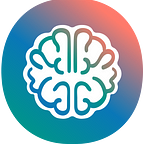Can AI Replace Therapists? A Myth About Generative AI.
Recently, you may have heard a lot of stories about how ChatGPT will replace therapy. You may have heard that you can simply ask ChatGPT to diagnose you and tell you what to do instead of visiting a therapist.
However, Elisabeth Rosenthal has written about the topic of whether AI chatbots can actually replace therapists. She explained that medicine is about a relationship between two humans and that AI will not ultimately replace therapists because AI cannot love.
In this post, let’s address some myths and discuss the technical differences between clinical decision support and diagnosis AI tools and generative AI tools like ChatGPT and Bard and their capabilities.
AI-powered clinical decision support tools are specifically designed to assist healthcare professionals in making clinical decisions. These tools are trained on large amounts of medical data and use algorithms to analyze this data and provide recommendations to healthcare professionals. They can help doctors diagnose diseases, provide treatment recommendations, and predict the likelihood of certain health outcomes. Additionally, they can improve patient outcomes by reducing errors and improving the accuracy of diagnoses.
On the other hand, when a generative AI algorithm provides an answer in response to a prompt, it’s essentially doing an advanced form of auto-complete by predicting the probability of certain words or phrases. Therefore, the outcome of a generative algorithm does not have anything to do with a diagnosis or any clinical decision. However, it has certain use cases in therapy.
Here are some real examples of generative AI use cases in healthcare:
- Generating personalized treatment plans: Generative AI can be used to generate personalized treatment plans for patients based on their medical history, symptoms, and other factors. This can help to improve the effectiveness of treatment and reduce the risk of side effects.
- Patient engagement: Generative AI can help patients stay engaged with the course of therapy by answering their questions outside of therapy sessions and providing them guidance on how to learn evidence-based therapy techniques.
- Therapist co-pilot: By collecting and organizing patient data, generative algorithms can simplify administrative tasks for mental health teams while ensuring that the care team has access to relevant information in a timely manner.
Consider the following example to understand better the difference between clinical decision support AI and generative AI algorithms that work as therapist co-pilots.
An example of a clinical decision support AI tool is the OPTT Health Triage algorithm, which uses patients’ self-told stories and narratives to recommend diagnosing mental health problems, their severity, the appropriate type of care provider (psychiatrist, therapist, or coach), and the most engaging medium (online, asynchronous, or hybrid).
OPTT therapist co-pilot is an example of a generative algorithm to assist with delivering personalized therapy. It uses the output of OPTT Health Triage can be used by a generative AI algorithm, and with its training on therapist feedback data, it can generate a new draft of feedback for therapists( You can book a time to receive a demo of its beta version.)
Generative AI is a powerful tool that has the potential to revolutionize healthcare. However, it is important to remember that generative AI does not replace human doctors. Generative AI can augment doctors' work, but it cannot replace their expertise and judgment.
In conclusion, generative AI is a promising tool to transform the healthcare industry. It is crucial to keep in mind that generative AI is not intended to replace human doctors. Instead, it can enhance their work, not substitute their knowledge and decision-making abilities. Nonetheless, clinical decision support and diagnosis AI tools are developed to support healthcare professionals. By using these tools ethically and responsibly, we can improve the quality of mental healthcare for all.
